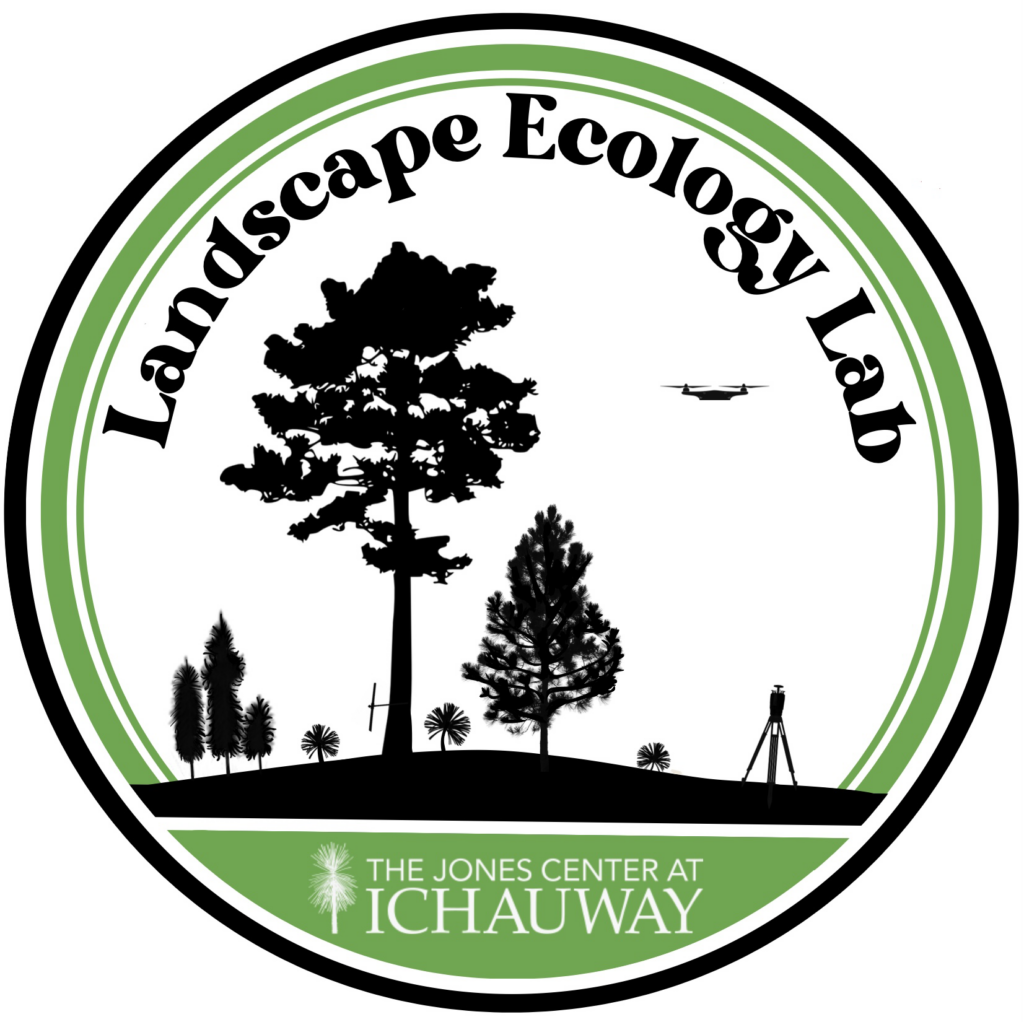Jones Center Landscape Ecology Lab
The mission of the Jones Center Landscape Ecology Lab is to advance the science and practice of landscape ecology to inform the conservation and management of ecosystems in the Southeastern US and beyond. We achieve this by (1) conducting innovative, interdisciplinary research addressing pressing conservation challenges, (2) designing practical, evidence-based solutions that integrate ecology, community, and policy, and (3) fostering the development of skilled experts and leaders who drive positive change in conservation. We focus our efforts on three major goals:
- Understand how hurricanes and fire shape forest structure and function
- Improve conservation and management outcomes in longleaf pine forests.
- Accelerate training and adoption of new technologies for addressing conservation issues
Read more about our research efforts, and see below for recent news from the Lab
News from the Landscape Ecology Lab

New study: Advancing hurricane ecology in endangered systems
Longleaf pine savannas are iconic and endangered ecosystems along the Gulf and Atlantic coasts, but intensifying hurricanes pose a growing threat to their persistence. Our team reviewed storm impacts across the longleaf range and found that 85% of remaining habitat experiences tropical storm-force winds every six years. We identified key risk factors—like fire, insects, and salvage logging—that can compound management challenges and delay recovery. This study, published in the journal BioScience highlights the need for climate-informed management strategies that build resilience in the face of increasingly frequent storms.
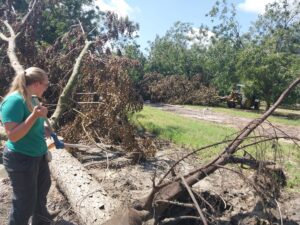
New study: Mitigating hurricane damage in pecan
Pecan orchards are a vital part of southern Georgia’s working landscapes, but recent hurricanes have caused severe losses to growers. In a post-storm field study, our lab surveyed over 1,100 trees across 11 orchards following Hurricane Idalia to understand patterns of wind damage. We found that intermediate-sized trees were most vulnerable and that orchard age structure plays a key role in storm resilience. These findings provide a foundation for climate-smart practices that can reduce risk and improve long-term sustainability.
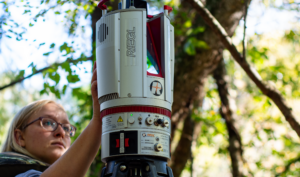
Now hiring: Landscape Ecology Seasonal Technician
We are seeking motivated individuals to apply for a Seasonal Technician position to contribute to research on restoration and hurricane ecology of longleaf pine woodlands. The successful applicant will assist with field data collection on forest restoration research, and collection and processing of terretrial lidar data. The position will work in a team setting with staff of the Landscape Ecology lab at the Jones Center at Ichauway. Applications reviewed immediately.
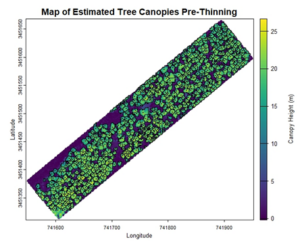
Extracting Stand Attributes from Aerial LiDAR Data
I was tasked with using aerial LiDAR to monitor changes in forest structure in a 30-year-old longleaf pine stand after thinning. After completing our lab’s online tutorials for getting started with LiDAR, I was able to develop an R script for estimating tree- and stand-level attributes. Follow along on this tutorial to see how simple remote sensing can be!
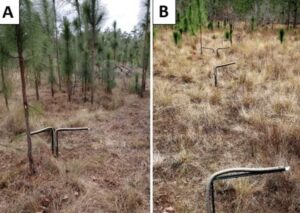
New study: Patchy longleaf pine regeneration changes fuels and fire behavior
Longleaf pine ecosystems depend on frequent fire which changes competitive and growth dynamics of the ecosystem. However, fire behavior is complex and driven by complex feedbacks between fire effects, fuels, and vegetation. In an intensive field study, we investigated how dense patches of longleaf pine regeneration can change fuels and fire behavior compared to regenerating saplings occuring singly. We found that regeneration have altered fuels, and often reduced fire behavior in a manner that likely shapes spatial dynamics in the ecosystem
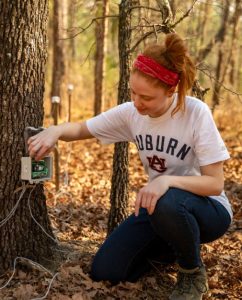
Now recruiting: PhD Research Assistantship in Forest and Fire Ecology
We are seeking motivated individuals to apply for a PhD research assistantship in Forest and Fire Ecology. The research will combine field intensive fuel, fire behavior, and regeneration data collection, mapping and processing, and capitalizing on existing and new data from the Ichauway Forest Dynamics Plot at the Jones Center. The student will be appointed as a Graduate Research Assistant (GRA) but will assist with teaching undergraduate courses in Forest Fire Management and Forest Ecology. Although a PhD student at Auburn University, the student’s work will be co-sponsored by the Jones Center at Ichauway. Applications reviewed February 28, 2025.
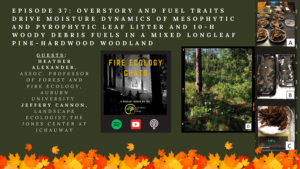
Lab’s mesophication work featured on Fire Ecology Chats Podcast (Ep. 37)
In this episode of Fire Ecology Chats, Fire Ecology editor Bob Keane speaks with Heather Alexander and Jeffery Cannon about reintroducing fire into mixed longleaf pine-hardwood woodlands, and how that will be affected by the shade-tolerant, fire-sensitive species that have grown during periods of fire exclusion.

Now hiring: Landscape Ecology Geospatial Analyst
We are seeking motivated individuals to apply for a Geospatial Analyst position to contribute to research and development that will improve forest conservation efforts in the southeastern US. Both remote and in-person candidates will be considered. The successful applicant will integrate cutting edge technologies (UAV and lidar), field experiments, and data science techniques to contribute to collaborations with conservation agencies and research partners. The position will work in a team setting with staff of the Landscape Ecology lab at the Jones Center at Ichauway. Applications reviewed immediately.
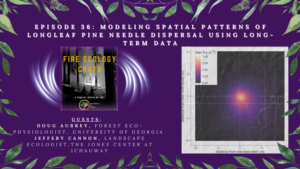
Lab’s fire research featured on Fire Ecology Chats Podcast (Ep. 36)
In this episode of Fire Ecology Chats, Fire Ecology editor Bob Keane speaks with Doug Aubrey and Jeffery Cannon about better predicting the leaf litter component in a pine forest to better understand how fire might move through forests under different management scenarios.
